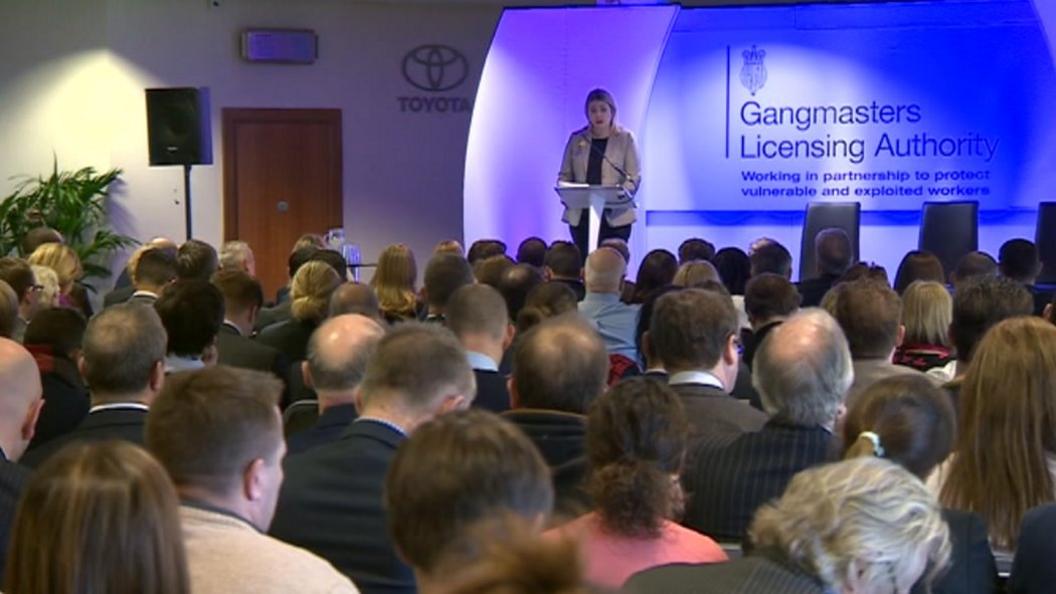Gangmasters Licence Authority given extended slavery remit
- Published
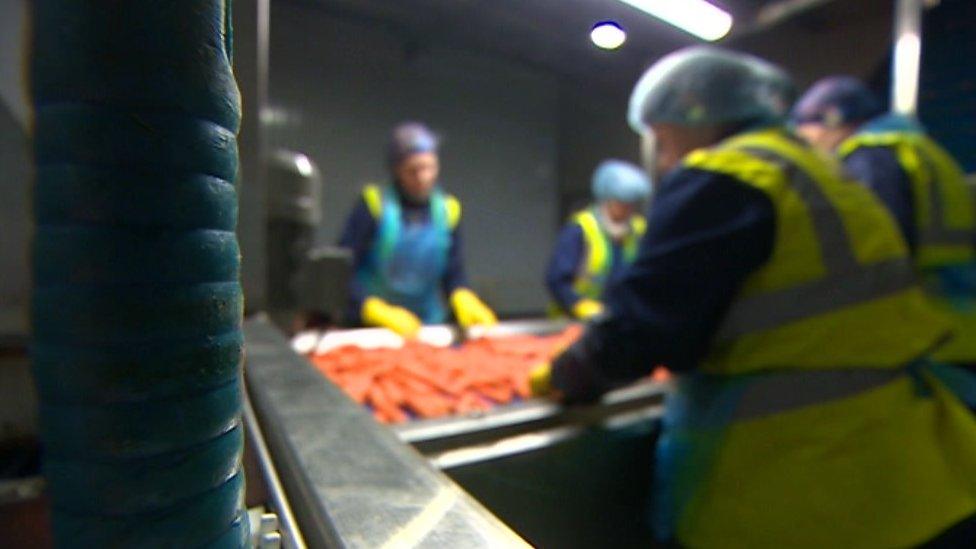
New powers will allow the Gangmasters Licence Authority (GLA) to investigate the catering industry
The Gangmasters Licence Authority (GLA) is setting up a new national team of investigators to tackle modern slavery.
The GLA's new remit, which currently covers food, farming and shellfish, will extend into catering, car washing, care homes and cleaning industries.
The Nottingham-based GLA said "highly experienced investigators" would make a difference.
The Home Office estimates there are up to 13,000 modern slaves in various trades across the UK.
'Horrendous crime'
Experts have said it is hard to know the extent of modern slavery as it so hidden and many victims are too scared to come forward.
However, figures from the National Referral Mechanism, a framework for identifying victims of human trafficking, suggests more people are being rescued.
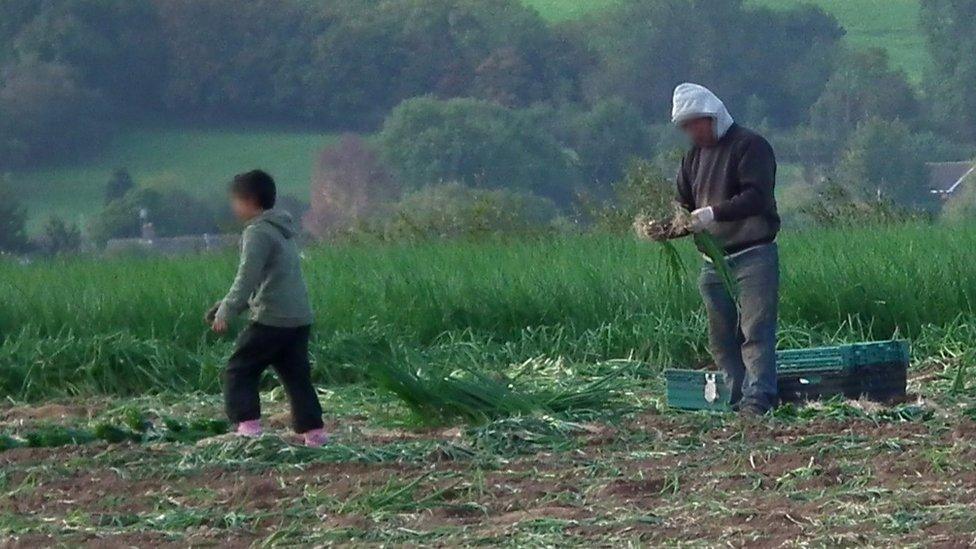
The Derby University course provides delegates with the "knowledge, skills and confidence to identify exploitative practice"
The National Crime Agency said 3,266 "potential victims" were referred to the NRM in 2015, which is 40% higher than the figure for 2014.
Paul Broadbent, chief executive of GLA, said: "[The new remit] will include any sector where labour is used and potentially exploited.
"We're talking about anything from withholding holiday pay right up to people being trafficked into the country and being kept like dogs in kennels and exploited for their labour."
Dave Walsh, at Derby University, has designed a new course to train people in the food industry and legitimate labour agencies about new legal duties to spot and challenge modern slavery.
"Modern slavery is a horrendous crime," he said.
"We see people having to work 96-100 hours per week, sleep 17 to a room and have very little money for food.
"There are threats towards themselves but also to their families.
"Even the most conservative estimates believe there's 11,000-13,000 people in modern slavery in various industries in the UK and that has got to be stamped out."
The GLA's new team will start from 1 October.

The role of the GLA
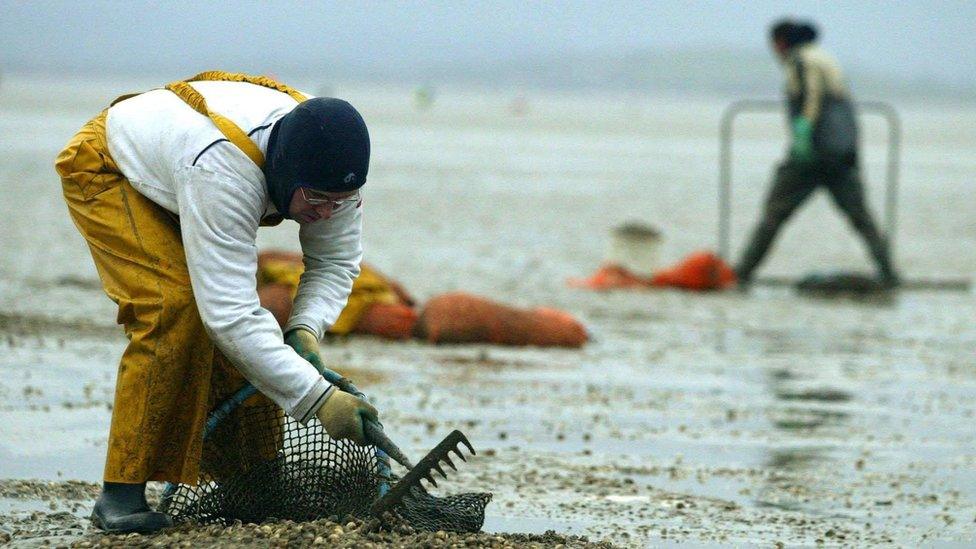
The GLA is a public body operating throughout the UK
It was formed in 2005 in the wake of the Morecambe Bay cockle picking disaster when 23 Chinese workers drowned
The GLA licences companies that supply labour for agriculture, horticulture, shellfish gathering - as well as all associated processing and packaging
Its main strategic priorities are to prevent worker exploitation, protect vulnerable people and tackle unlicensed and criminal activity
Under the Gangmasters (Licensing) Act (2004) it is illegal both to operate as, or employ the services of, an unlicensed gangmaster

- Published16 November 2015
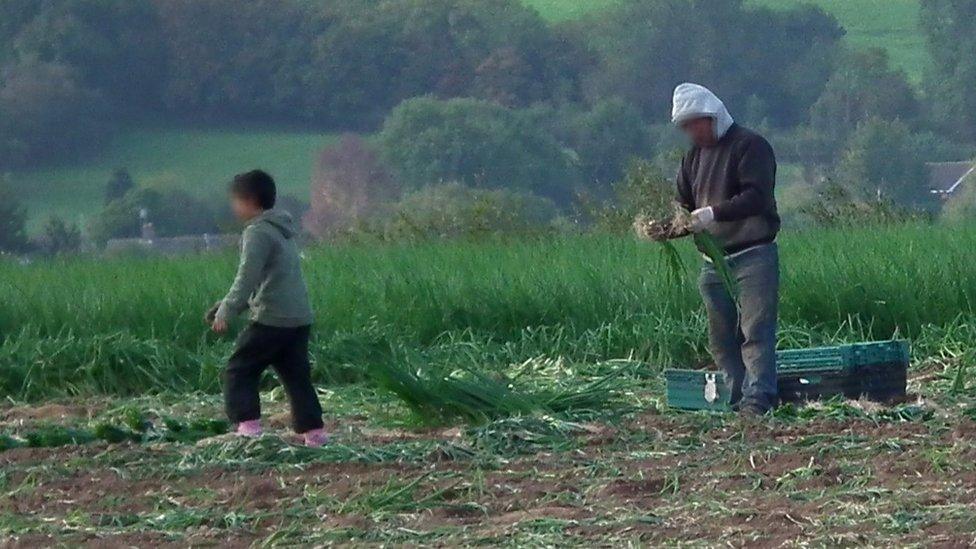
- Published3 March 2015
